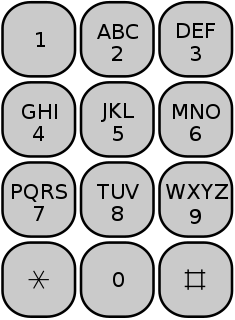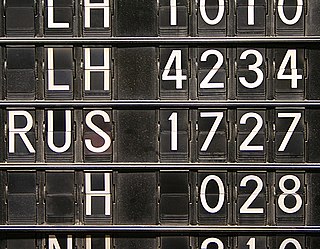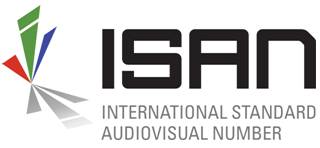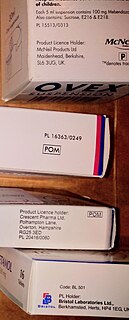 W
WAn identifier is a name that identifies either a unique object or a unique class of objects, where the "object" or class may be an idea, physical countable object, or physical noncountable substance. The abbreviation ID often refers to identity, identification, or an identifier. An identifier may be a word, number, letter, symbol, or any combination of those.
 W
WAn access badge is a credential used to gain entry to an area having automated access control entry points. Entry points may be doors, turnstiles, parking gates or other barriers.
 W
WIn libraries, art galleries, museums and archives, an accession number is a unique identifier assigned to, and achieving initial control of, each acquisition. Assignment of accession numbers typically occurs at the point of accessioning or cataloging. The term is something of a misnomer, because the form accession numbers take is often alpha-numeric.
 W
WAn Archival Resource Key (ARK) is a multi-purpose URL suited to being a persistent identifier for information objects of any type. It is widely used by libraries, data centers, archives, museums, publishers, and government agencies to provide reliable references to scholarly, scientific, and cultural objects. In 2019 it was registered as a Uniform Resource Identifier (URI).
 W
WBag tags, also known as baggage tags, baggage checks or luggage tickets, have traditionally been used by bus, train, and airline carriers to route checked luggage to its final destination. The passenger stub is typically handed to the passenger or attached to the ticket envelope: to aid the passenger in identifying their bag among similar bags at the destination baggage carousel; as proof—still requested at a few airports—that the passenger is not removing someone else's bag from the baggage reclaim hall; and as a means for the passenger and carrier to identify and trace a specific bag that has gone astray and was not delivered at the destination. The carriers' liability is restricted to published tariffs and international agreements.
 W
WA catalog number is an identification number assigned to a music release by a record label.
 W
WThe Danish bicycle VIN-system is a system introduced in 1942 by the Danish government, providing all bicycles in Denmark with a unique code. The VIN code is a combination of letters and digits embedded into the bicycle frame and consists of a manufacturer code, a serial number, and construction year code.
 W
WDataCite is an international not-for-profit organization which aims to improve data citation in order to:establish easier access to research data on the Internet increase acceptance of research data as legitimate, citable contributions to the scholarly record support data archiving that will permit results to be verified and re-purposed for future study.
 W
WA digital object identifier (DOI) is a persistent identifier or handle used to identify objects uniquely, standardized by the International Organization for Standardization (ISO). An implementation of the Handle System, DOIs are in wide use mainly to identify academic, professional, and government information, such as journal articles, research reports, data sets, and official publications. However, they also have been used to identify other types of information resources, such as commercial videos.
 W
WA disabled parking permit, also known as a disabled badge, disabled placard, handicapped permit, handicapped placard, handicapped tag, and "Blue Badge" in the European Union, is a permit that is displayed upon parking a vehicle. It gives the operator of a vehicle permission to special privileges regarding the parking of that vehicle. These privileges include parking in a space reserved for persons with disabilities, or, in some situations, permission to park in a time-limited space for a longer time, or to park at a meter without payment.
 W
WA domain name is an identification string that defines a realm of administrative autonomy, authority or control within the Internet. Domain names are used in various networking contexts and for application-specific naming and addressing purposes. In general, a domain name identifies a network domain, or it represents an Internet Protocol (IP) resource, such as a personal computer used to access the Internet, a server computer hosting a website, or the web site itself or any other service communicated via the Internet. In 2017, 330.6 million domain names had been registered.
 W
WE.161 is an ITU-T Recommendation that defines the arrangement of digits, letters, and symbols on telephone keypads and rotary dials. It also defines the recommended mapping between the basic Latin alphabet and digits. Uses for this mapping include:Multi-tap and predictive text systems. Forming phonewords from telephone numbers. Using alphabetic characters in a personal identification number.
 W
WE.164 is an international standard, titled The international public telecommunication numbering plan, that defines a numbering plan for the worldwide public switched telephone network (PSTN) and some other data networks.
 W
WThe Electronic Product Code (EPC) is designed as a universal identifier that provides a unique identity for every physical object anywhere in the world, for all time. The EPC structure is defined in the EPCglobal Tag Data Standard, which is an open standard freely available for download from the website of EPCglobal, Inc.. The canonical representation of an EPC is a URI, namely the 'pure-identity URI' representation that is intended for use when referring to a specific physical object in communications about EPCs among information systems and business application software.
 W
WIn computer science, a fingerprinting algorithm is a procedure that maps an arbitrarily large data item to a much shorter bit string, its fingerprint, that uniquely identifies the original data for all practical purposes just as human fingerprints uniquely identify people for practical purposes. This fingerprint may be used for data deduplication purposes. This is also referred to as file fingerprinting, data fingerprinting, or structured data fingerprinting.
 W
WIn the aviation industry, a flight number or flight designator is a code for an airline service consisting of two-character airline designator and a 1 to 4 digit number. For example, "BA 98" is a British Airways service from Toronto-Pearson to London-Heathrow. A service is called "direct" if it is covered by a single flight number, regardless of the number of stops or equipment changes. For example, "WN 417" flies from Jacksonville to Baltimore to Oakland to Los Angeles. A given flight segment may have multiple flight numbers on different airlines under a code-sharing agreement. Strictly speaking, the flight number is just the numerical part, but it is commonly used for the entire flight designator.
 W
WThe Gemeinsame Körperschaftsdatei or GKD is a German authority control for the organisation of corporation names from catalogues. It is used mainly for documentation in libraries. Like the Schlagwortnormdatei (SWD) and the Personennamendatei (PND), the GKD is looked after and updated by the German National Library (DNB), the Bavarian State Library, the Berlin State Library and, since 1997, the Austrian National Library, several library networks taking part. The responsible editor is the State Library in Berlin. The GKD was created in the 1970s from the catalogue data of the Zeitschriftendatenbank (ZDB). In April 2004 it contained more than 915,000 records.
 W
WA universally unique identifier (UUID) is a 128-bit label used for information in computer systems. The term globally unique identifier (GUID) is also used, often in software created by Microsoft.
 W
WAmerican industrial rock band Nine Inch Nails have released 11 studio albums, one live album, three remix albums, one box set, six extended plays, 20 singles, 10 promotional singles, four video albums and 31 music videos. Nine Inch Nails has also contributed to numerous film soundtracks as well as the soundtrack to the video game Quake.
 W
WA headstamp is the markings on the bottom of a cartridge case designed for a firearm. It usually tells who manufactured the case. If it is a civilian case it often also tells the caliber: if it is military, the year of manufacture is often added.
 W
WAn Identicon is a visual representation of a hash value, usually of an IP address, that serves to identify a user of a computer system as a form of avatar while protecting the user's privacy. The original Identicon was a 9-block graphic, and the representation has been extended to other graphic forms by third parties.
 W
WThe International Article Number is a standard describing a barcode symbology and numbering system used in global trade to identify a specific retail product type, in a specific packaging configuration, from a specific manufacturer. The standard has been subsumed in the Global Trade Item Number standard from the GS1 organization; the same numbers can be referred to as GTINs and can be encoded in other barcode symbologies defined by GS1. EAN barcodes are used worldwide for lookup at retail point of sale, but can also be used as numbers for other purposes such as wholesale ordering or accounting. These barcodes only represent the digits 0–9, unlike some other barcode symbologies which can represent additional characters.
 W
WInternational Standard Audiovisual Number (ISAN) is a unique identifier for audiovisual works and related versions, similar to ISBN for books. It was developed within an ISO TC46/SC9 working group. ISAN is managed and run by ISAN-IA.
 W
WThe International Standard Book Number (ISBN) is a numeric commercial book identifier which is intended to be unique. Publishers purchase ISBNs from an affiliate of the International ISBN Agency.
 W
WThe International Standard Music Number or ISMN is a thirteen-character alphanumeric identifier for printed music developed by ISO.
 W
WA headstamp is the markings on the bottom of a cartridge case designed for a firearm. It usually tells who manufactured the case. Military headstamps usually have only the year of manufacture.
 W
WThis Perfect Day is a science fiction novel by American writer Ira Levin, about a technocratic dystopia. Levin won a Prometheus Award in 1992 for this novel. This Perfect Day is one of two Levin novels yet to be adapted to film.
 W
WA NATO Stock Number, or National Stock Number (NSN) as it is known in the US, is a 13-digit numeric code, identifying all the 'standardized material items of supply' as they have been recognized by all NATO countries. Pursuant to the NATO Standardization Agreements, the NSN has come to be used in all treaty countries. However, many countries that use the NSN program are not members of NATO. A two-digit Material Management Aggregation Code (MMAC) suffix may also be appended, to denote asset end use but it is not considered part of the NSN. In the United Kingdom it is known as a Domestic Management Code (DMC).
 W
WThe ORCID is a nonproprietary alphanumeric code to uniquely identify authors and contributors of scholarly communication as well as ORCID's website and services to look up authors and their bibliographic output.
 W
WA persistent identifier is a long-lasting reference to a document, file, web page, or other object.
 W
WPrice look-up codes, commonly called PLU codes, PLU numbers, PLUs, produce codes, or produce labels, are a system of numbers that uniquely identify bulk produce sold in grocery stores and supermarkets. The codes have been in use since 1990, and over 1400 have been assigned. The codes are administered by the International Federation for Produce Standards (IFPS), a global coalition of fruit and vegetable associations that was formed in 2001 to introduce PLU numbers globally.
 W
WA Product Licence Number is a unique identifier on the packaging of medicines, used to uniquely identify the product. This code will normally remain the same despite the varying marketing and branding of the companies selling it.
 W
WA reporting mark is a code used to identify owners or lessees of rolling stock and other equipment used on certain rail transport networks. The code typically reflects the name or identifying number of the owner, lessee, or operator of the equipment.
 W
WA room number is a number assigned to a room within a building. Its purpose is to identify a particular room, and help building inhabitants locate that room. Logical and consistent assignment of room numbers is important for efficient everyday building usage, and to allow emergency personnel to quickly and easily find their way to any area of a building.
 W
WA ship identifier refers to one of several types of identifiers used for maritime vessels. An identifier may be a proper noun ; a proper noun combined with a standardized prefix based on the type of ship ; a serial code; a unique, alphanumeric ID ; or an alphanumeric ID displayed in international signal flags. Some identifiers are permanent for a ship while others may be changed at the owners' discretion although regulatory agencies will need to approve the change. Modern ships will usually have several identifiers.
 W
WA storey or story is any level part of a building with a floor that could be used by people. Plurals for the word are storeys (UK) and stories (US).
 W
WA telephone number is a sequence of digits assigned to a fixed-line telephone subscriber station connected to a telephone line or to a wireless electronic telephony device, such as a radio telephone or a mobile telephone, or to other devices for data transmission via the public switched telephone network (PSTN) or other public and private networks.
 W
WThe Universal Product Code is a barcode symbology that is widely used worldwide for tracking trade items in stores.
 W
WA vehicle registration plate, also known as a number plate, license plate, or licence plate, is a metal or plastic plate attached to a motor vehicle or trailer for official identification purposes. All countries require registration plates for road vehicles such as cars, trucks, and motorcycles. Whether they are required for other vehicles, such as bicycles, boats, or tractors, may vary by jurisdiction. The registration identifier is a numeric or alphanumeric ID that uniquely identifies the vehicle or vehicle owner within the issuing region's vehicle register. In some countries, the identifier is unique within the entire country, while in others it is unique within a state or province. Whether the identifier is associated with a vehicle or a person also varies by issuing agency. There are also electronic license plates.
 W
WThe Virtual International Authority File (VIAF) is an international authority file. It is a joint project of several national libraries and operated by the Online Computer Library Center (OCLC).